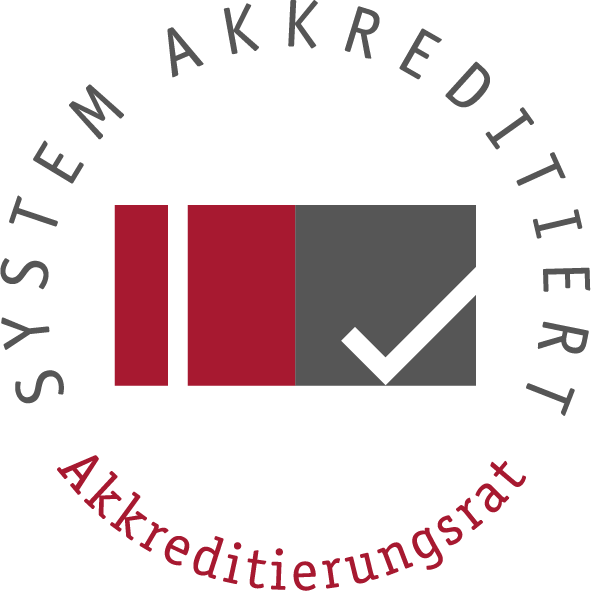Master of Laws (LL.M.)
-
-
Discontinued programme
-
The ever closer ties between individual Member States of the European Union and between their legal systems have made cooperation between lawyers from different national backgrounds increasingly important. The postgraduate programme "Master of Laws (LL.M.)" offers law graduates from countries outside Germany the opportunity to become acquainted with the fundamentals of German law and to pass an examination on the subject. The LL.M. programme also provides German and non-German law graduates who have received their academic training in a Member State of the European Union with the preparation needed to be able to practice as a European lawyer.
The Master of Laws qualification LL.M is a well-respected and internationally recognized academic qualification that provides law graduates with substantial advantages in the career market. Students on the postgraduate LL.M. programme are taught the fundamental aspects of German law and have the opportunity to extend and deepen their understanding in a chosen area of law. Students take compulsory modules in civil law, two elective modules and participate in a tutorial in which different legal systems are compared. The compulsory modules in civil law cover German private law (general part), the law of obligations and substantive law. Students are also taught the relevant parts of German procedural law as well as the main features of the law of enforcement, debt recovery and insolvency law. Students can select elective modules from the following list: public law, criminal law, family and inheritance law (estate law), commercial law and company law, labour law, competition and antitrust law.
Studieninhalte sind die Lehrveranstaltungen der Rechtswissenschaft im Pflichtfach Zivilrecht und in zwei Wahlfächern sowie ein rechtsvergleichendes Tutorium im Zivilrecht.
Das Pflichtfach Zivilrecht umfasst:
- den Allgemeinen Teil des Bürgerlichen Rechts,
- das Schuldrecht,
- das Sachenrecht.
Hinzu kommen:
- das entsprechende Verfahrens- bzw. Prozessrecht sowie
- Grundzüge des Zwangsvollstreckungs- und Insolvenzrechts.
Wahlfächer sind:
- Öffentliches Recht (Staatsrecht, Verwaltungsrecht)
- Strafrecht
- besondere Gebiete des Zivilrechts (Familienrecht, Erbrecht)
- Handelsrecht, Gesellschaftsrecht
- Arbeitsrecht
- Wettbewerbs- und Kartellrecht
Voraussetzung für die Zulassung zur Prüfung sind:
- die ordnungsgemäße Teilnahme am Studium,
- eine mindestens mit "ausreichend" bewertete rechtsvergleichende schriftliche Arbeit,
- zwei Leistungsnachweise im Pflichtfach,
- je ein Leistungsnachweis in den beiden Wahlfächern sowie
- eine Magisterarbeit in deutscher Sprache, die nach dem ersten Semester begonnen werden darf und spätestens zum Ende des zweiten Semesters abgegeben werden muss.
Prüfungsleistungen sind:
- die Magisterarbeit,
- je eine mündliche Prüfung im Pflichtfach,
- je eine mündliche Prüfung in den beiden Wahlfächern.
In das Gesamtergebnis gehen auch die vier Leistungsnachweise und die rechtsvergleichende Arbeit ein.
Study regulations (in German)
| Standard period of study | 2 semesters |
| Language of instruction | German |
German language requirements | CEFR: B2 |
| Tuition fees | €500 per semester |
| Semester fee | See current fee structure |
| Web page |
Course adviser
Elizabeth Harvey
Phone: +49 681 302-4289
elizabeth.harvey(at)uni-saarland.de
martinek.jura.uni-saarland.de
Central Student Advisory Service
Saarbrücken Campus
Building A4 4, Ground floor
Phone: +49 681 302-3513
studienberatung(at)uni-saarland.de
www.uni-saarland.de/studienberatung
Central Student Advisory Service
Saarbrücken Campus
Building A4 4, Ground floor
Phone: +49 681 302-3513
studienberatung(at)uni-saarland.de
Central Student Advisory Service

Accredited study programmes
Saarland University was one of the first universities in Germany to achieve Quality Assurance Accreditation and has held the Accreditation Council's official quality mark continuously since 2012.
Quality management
